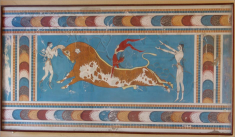Speaker
Description
The CMS experiment uses a two-level triggering system consisting of the Level-1, instrumented by custom-design hardware boards and delivering an output rate of 100 kHz, and the High Level Trigger, a streamlined version of the offline reconstruction software running on a computer farm, which sends a rate of about 1 kHz to permanent storage. This system has been evolving continuously since the startup of the LHC. While the current system will basically remain in use for the next LHC running period (Run-3 starting in 2022), new features and algorithms are already being developed to take care of higher data loads due to increasing LHC luminosity and pileup but also of new experimental signatures to be investigated (in particular, displaced decay vertices stemming from relatively long-lived particles created in proton-proton collisions). A major upgrade of the triggering system will then happen within the framework of the upgrade of the collider to the High-Luminosity LHC, which will deliver a luminosity of 5-7.5 times the design value, corresponding to 140-200 pileup events. An important difference from the present system will be the fact that after the upgrade, information from the silicon strip tracker will be available already for the Level-1 Trigger. This will allow CMS to use so-called particle flow objects, i.e. signals seen not only in one subdetector but put together from all available subdetectors, resulting in much sharper efficiency turn-on curves for trigger objects. Also, trigger rates will rise by a factor of about 7.5 both at Level-1 (to 750 kHz) and at the High-Level Trigger (7.5 kHz) and the latency - the processing time available for arriving at the Level-1 trigger decision - will increase significantly, allowing for the use of more sophisticated algorithms at Level-1.
Details
Dr. Pallabi Das, Princeton University, USA, https://phy.princeton.edu/
| Is this abstract from experiment? | Yes |
|---|---|
| Name of experiment and experimental site | CMS, CERN |
| Is the speaker for that presentation defined? | Yes |
| Internet talk | Yes |




